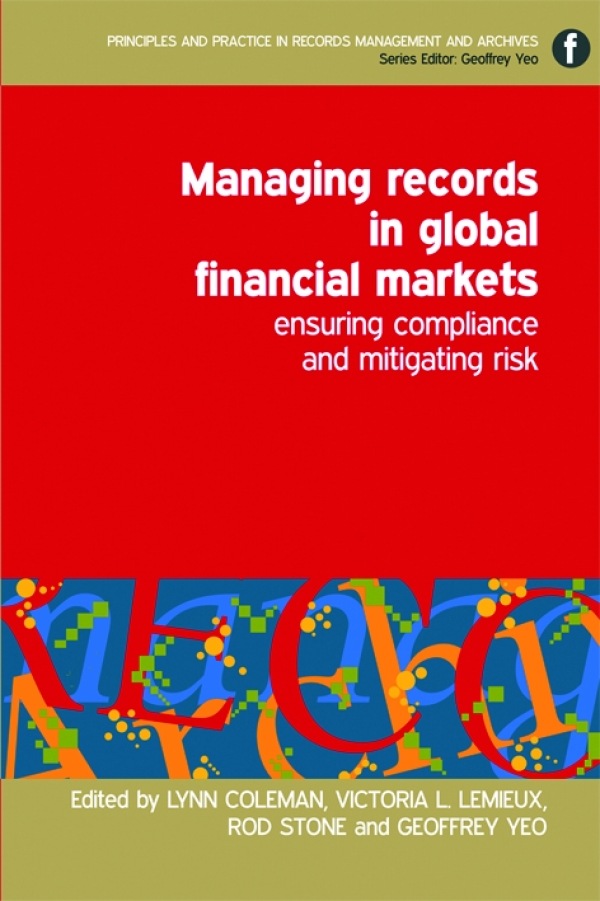Book contents
- Frontmatter
- Contents
- Introduction to the series
- Contributors
- Introduction
- List of abbreviations
- 1 Global financial markets
- Part 1 Regulatory and legal compliance
- Part 2 Balancing risk and return
- Part 3 Litigation-related issues
- Part 4 Record-keeping approaches
- 13 Establishing a global policy framework for the management of records
- 14 Embedding records management in the business
- 15 Corporate memory: the development and maintenance of an archival service
- Index
15 - Corporate memory: the development and maintenance of an archival service
from Part 4 - Record-keeping approaches
Published online by Cambridge University Press: 08 June 2018
- Frontmatter
- Contents
- Introduction to the series
- Contributors
- Introduction
- List of abbreviations
- 1 Global financial markets
- Part 1 Regulatory and legal compliance
- Part 2 Balancing risk and return
- Part 3 Litigation-related issues
- Part 4 Record-keeping approaches
- 13 Establishing a global policy framework for the management of records
- 14 Embedding records management in the business
- 15 Corporate memory: the development and maintenance of an archival service
- Index
Summary
Introduction
Global financial markets may sound like an unlikely environment for archivists to inhabit. But beyond the sharp suits and gleaming skyscrapers of the 21st century, there exists a past legacy teeming with prominent personalities, landmark deals, business innovation and pioneering cross-border relations. The wide sweep of this history reveals how the markets have helped to shape the economics, politics and society of the modern world. The historical archives of individual corporations allow us to focus in on the distinct corporate memories that make up this bigger picture. Every firm has a different story to tell: a unique corporate culture shaped by past employees, events and decisions.
Archivists take responsibility for preserving and promoting the archives to ‘bring to life’ these corporate memories; and they continue to breathe new life into the memory by selecting and storing more recent business records for future generations.
In fact, in-house archivists, and the corporate memories they maintain, are highly valued by an increasing number of companies around the world, whilst the archives themselves are being utilized in ever more imaginative ways to support business functions across the board. This chapter advocates the maintenance of a formal archival programme as a means of maximizing the benefits from company heritage.
The connection with records management lies in the simple fact that some records possess a surprisingly long and useful shelf life in the archives, many years after they have reached the retention deadline set with their creators. And one of the most intriguing issues today concerns this point of handover from the records management regime to the domain of the archivist. As explored in earlier chapters, the complexity of modern record-keeping within the global banking environment has required significant revisions to records management policy and procedures. This impact extends to archives too, as the archival profession's traditional practices are overhauled to ensure corporate memories are extended into the 21st century. This chapter begins by outlining the development of the corporate archives sector and its traditional approach to record-keeping. It explores the ways in which the modern business environment is challenging this approach and considers the potential areas for collaboration between records management and archives.
- Type
- Chapter
- Information
- Managing Records in Global Financial MarketsEnsuring Compliance and Mitigating Risk, pp. 217 - 228Publisher: FacetPrint publication year: 2011



